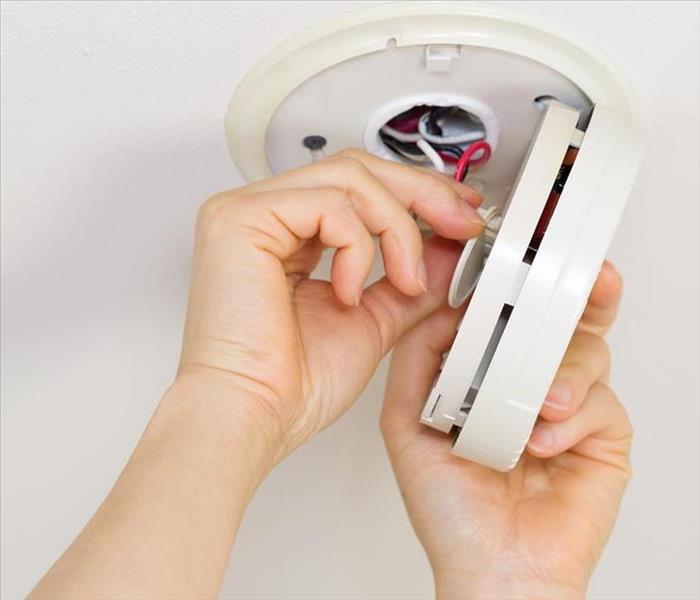Fire Alarm Basics You Need To Know
2/23/2022 (Permalink)
 Learn More about Fire Alarms by following These Tips and prevent Fire Damage in your Park City, UT Home.
Learn More about Fire Alarms by following These Tips and prevent Fire Damage in your Park City, UT Home.
The fire alarm is one of the most effective ways to keep your home and family safe from a fire. The more you know about this convenient, affordable tool, the better you can use them in your home. Home fires can be some of the most frightening experiences that impact your home and maintaining a proper prevention and detection system is a vital element of keeping your family safe.
Five Useful Facts and Tips About the Fire Alarm
Which alarms are best? How many should you have in your home? What type of maintenance do alarms require? Installing and maintaining an effective alarm system doesn't have to be difficult, but it does call for some basic information.
1. Smoke alarms have different purposes.
Whether you refer to them as fire or smoke alarms or detectors, it's important to understand the different types and purposes of the alarms. A photoelectric alarm is more likely to recognize a smoldering fire as smoke particles disrupt an internal light sensor. Ionization alarms quickly respond to high flames.
The National Fire Protection Association recommends using both types of alarms in your home or a combination alarm that contains both technologies.
2. You probably need more alarms in your home.
You should have a detector inside each bedroom and in the hallway outside of the bedrooms. You also need a detector on every floor of your home. Consider hanging one in the kitchen, the garage, and other areas of the home where combustible materials are used and stored.
3. Smoke detectors require maintenance and inspections.
You may have already responded to that piercing chirping of an alarm with dying batteries. In addition to the once or twice-yearly battery replacement, you should test each alarm once a month or more often. Look for the test button on your alarm and hold it for a few seconds. You should hear a very loud beep. If you can't hear it or if the alarm is quiet, it's time to replace the batteries.
4. Don't paint the alarm and keep it free from other obstructions.
While you're testing, watch out for dust and buildup on or around the alarm. Paint, dirt, and grease buildup can prevent airflow around the alarm and stop it from detecting flames and smoke.
5. You should invest in interconnected alarms.
Reach out to professionals for an interconnected fire alarm system. If a fire breaks out in one part of the home, you want your entire family to receive the alarm. It only takes a few minutes for fire to spread throughout your home, so every second of advance warning you have gives you a better chance of safely evacuating. When professionals install your system, you can be confident that alarms are connected correctly and in proper working order.
When fire does affect your Park City, UT, home, there's a lot of potential for water and smoke damage, as well as secondary issues. Learn more about the steps you can take to avoid fire damage by reaching out to your insurance company, the local fire department, and fire mitigation and cleanup professionals.





 24/7 Emergency Service
24/7 Emergency Service